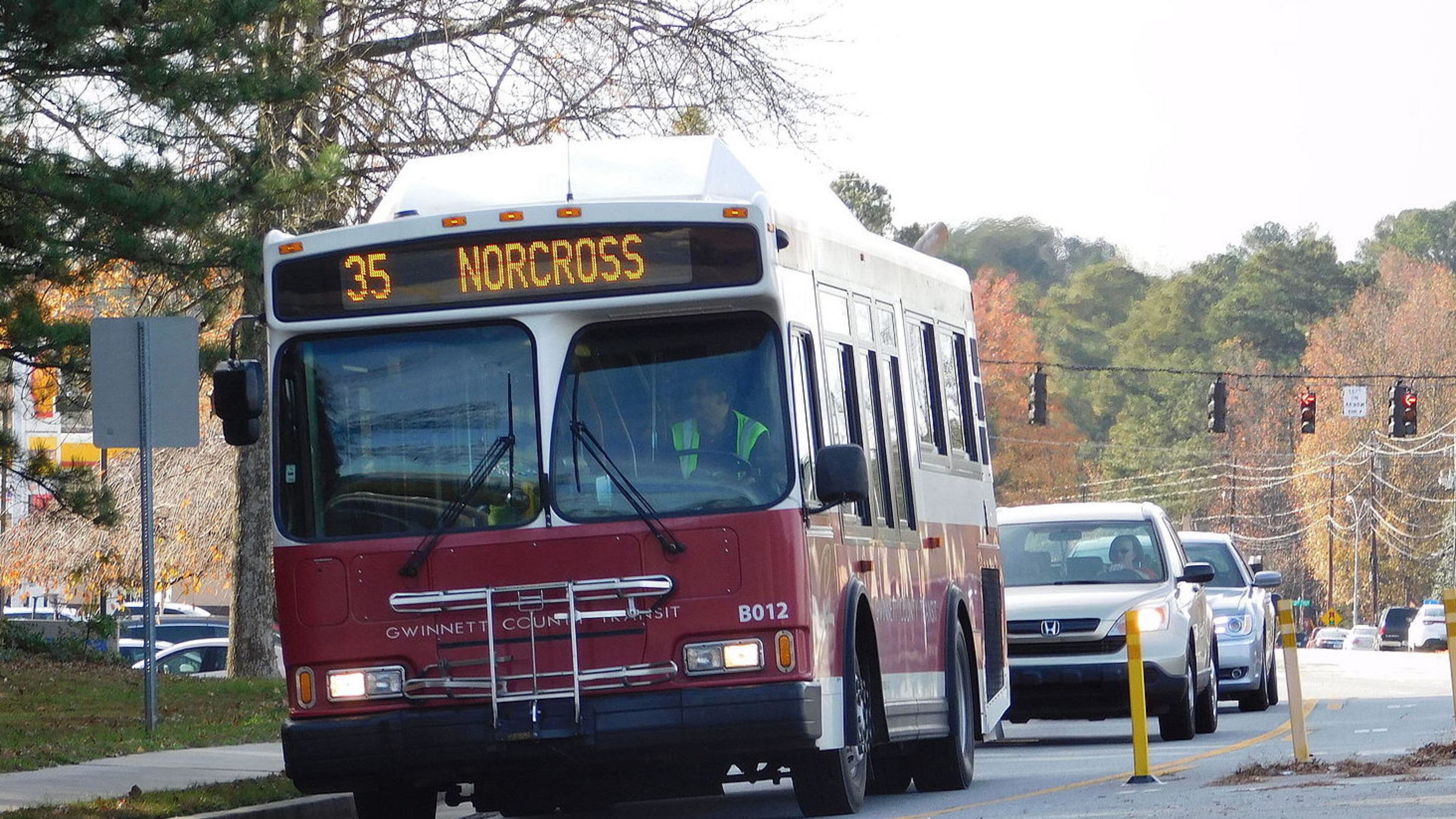If Gwinnett votes for mass transit in 2018, what should it include?

Earlier this month, Gwinnett County Commissioners approved a 91-page comprehensive transportation plan based on two years worth of professional evaluation and public input. The resulting plan includes long lists of potential short-, medium-, and long-term projects that will be funded through the county’s SPLOST program.
Among the many projects approved, county residents will likely see the widening of I-85 from Pleasant Hill Road to the DeKalb County line, widening of Peachtree Industrial Boulevard from Holcomb Bridge Road to I-285, and the widening of Ga. 20 from Buford Highway to Peachtree Industrial Boulevard, to name just a few. In addition, more than 50 sidewalk and pedestrian safety projects and numerous intersection upgrades are proposed.
But it will take a separate analysis to look closer at the county’s mass transit options. This spinoff study is still several months away from completion. In a small study conducted earlier this year, residents indicated they might be ready to pay more sales tax to fund expanded transit choices.
Currently, Gwinnett County Transit consists of five local bus routes operating Monday through Saturday and six express routes that run Monday through Friday.
Gwinnett Commissioner Charlotte Nash has indicated she’d like to see a countywide transit referendum on the 2018 ballot in order to let voters decide.
If voters choose to pay for additional mass transit options, how should the money be spent? Do you want to see more bus routes, light rail, or some other solution? Are specific areas of the county in greater need than others?
When the lights went out for 12 hours last Sunday at Hartsfield-Jackson International Airport thousands of flights were directly and indirectly affected. Delta Airlines, headquarted in Atlanta, was forced to cancel 1,400 flights and lost anywhere from $25 million to $50 million in revenue. CEO Ed Bastian said his company plans to recoup those loses. Although Delta may have lost the most money, countless business travelers as well as vacationers and college students on winter break missed connections and were stranded in Atlanta and other airports worldwide. While everyone wants compensation for inconvenience, lost time, health concerns and for some lost wages, the big question is who should they get it from?
Here’s what some readers had to say:
I’m pretty sure that GPC would have implemented as many “redundant” raceways / circuitry as THE CITY OF ATLANTA WAS WILLING TO APPROVE ($$) during all the last few years of expand this, modify that, wreck out this, build on that, no tear that out, wait fire the architects, Georgia Power should not be expected to have provided more this this “special” customer, actually two “special” customers so that they don’t have to face the vicissitudes of daily living that the rest of us do.
The city of Atlanta should implement a fund to compensate victims on a case by case basis, and Delta should get NOTHING. — Joe Dawsey
Clearly, there is one party that is not at fault and that is Delta Air Lines and all the other airlines who serve the airport. That leaves responsibility for this fiasco somewhere between the City of Atlanta, who runs the airport, and Georgia Power Co., whose equipment caught fire and failed. This was compounded by inappropriate placement of backup systems that also failed. Who knows more about electrical fires; their causes; and their consequences than Georgia Power? The City/Airport is responsible for poor communication; emergency (battery) lighting in the terminals/concourses; and for not having a plan in place to deal with this type of crisis. — Harry Shuman
To my recollection, Delta has offered little or no compensation to passengers inconvenienced by their computer system problems (e.g. Jan. 2017 and Aug. 2016) or the weather (acts of God). Thus Delta has a lot of nerve asking for compensation for the airport power outage, which could be considered in a similar category. — Ron Kurtz
Ultimately Georgia Power has the lions share of fault for this one. As an IT professional for well over 20 years, I’ve been surrounded by disaster plans and redundant systems my entire career and in no instance have I ever seen a redundant system (IT or power) located in the same area as the primary system. That’s disaster planning 101 and the entire point of redundancy. One system shuts down the other takes over, plain and simple. With the recent PSC decision to allow construction on Vogltle’s third and fourth nuclear reactors to continue despite numerous delays and cost overruns, Georgia Power has demonstrated it has no problem saddling it’s customer with additional costs for years to come. It only seems fair that they pony up compensation to the airlines and other affected parties for a situation that could of been avoided or at the very least mitigated from the fiasco it turned out to be. — LaTonya M. Paschal
Georgia Power should pay if they owned the equipment that failed and were responsible for its maintenance. And, no, they cannot be allowed to raise power rates to “recoup losses”. If they messed up big-time, the loss is theirs. — Dick Marti

